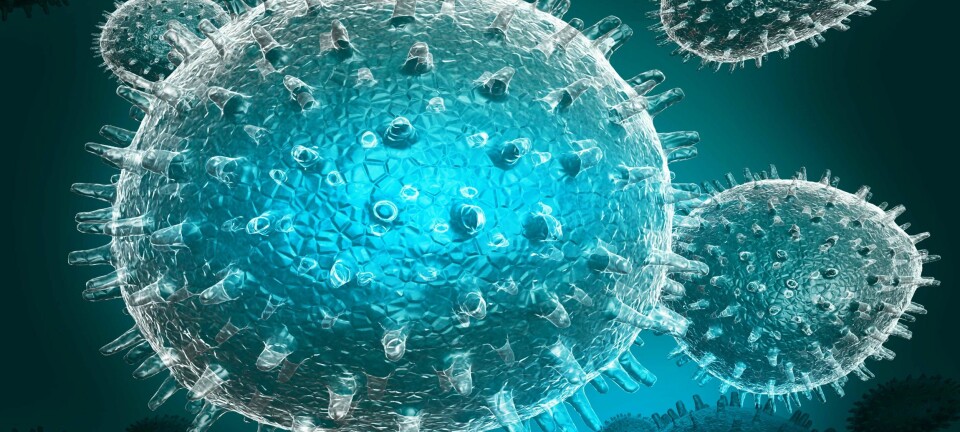
Why immunotherapy is such an effective cancer killer
An international team of researchers find molecular mechanism that makes new cancer drugs so effective.
Immunotherapy, where doctors attempt to get the body's immune system to attack malignant tumours, is gradually gaining ground in cancer treatment.
A number of immunotherapy drugs are already used in cancer treatment and even more await the results of the latest clinical tests.
Ipilimumab (marketed as Yervoy) is one drug already approved for use in patients with melanoma -- when taken, the drug stimulates the body's immune system to attack the cancerous cells and it is extremely effective.
Until now, researchers have been unable to figure out why the cancer drug is so effective. All they knew was that it worked.
Mystery of effective cancer drugs solved
In a new study, researchers from the Netherlands Cancer Institute have shown that Ipilimumab is so effective because it arms the body's own immune system with numerous molecular weapons, making the body's own fight against cancer more effective.
According to the researchers, the discovery could pave the way for even more target-oriented cancer treatment with both immunotherapy and other types of treatment.
"There's no doubt that more and more immunotherapy drugs will come onto the market in the near future,” says Danish co-author Dr. Pia Kvistborg with the Netherlands Cancer Institute.
In the future, she says, cancer treatment is likely to be a combination of traditional treatments, such as chemotherapy, and new immunotherapies and for that reason it’s important for scientists to know how immunotherapy treatment forms function at the molecular level so that we can combine treatments to achieve the most effective result.”
The study was recently published in Science Translational Medicine.
Professor: “Incredibly exciting work”
Per Thor Straten, a professor of clinical medicine and the head of the Centre for Cancer Immunotherapy, CCIT, at Herlev Hospital near Copenhagen, calls the new study very interesting.
“It's incredibly exciting work, and extremely thorough. And it has to be said that the researchers have used practically every available tool in their work," says Straten.
"The study is also interesting because it points out that Ipilimumab functions in the way we thought it did," he says.
Cancer evades the immune system
To understand immunotherapy as a form of cancer treatment, we first have to take a look at some of the mechanisms behind the way most types of cancer fool the body's immune system.
One purpose of the immune system is to deal with sick cells and stop them developing into malignant tumours.
The immune system's T-cells do this by binding themselves with specific receptors to the surface proteins on cancer cells and releasing substances that kill the sick cells.
Cancer cells have found out how to evade these attacks by the immune system.
They do so by encasing themselves in transmitter substances which prevent them from being recognised by the T-cells' receptors. This is what happens when melanoma develops.
All the immune system can do is to stand by and watch the malignant tumours grow ever larger. If the immune system is unable to bind to the sick cells, it cannot kill them.
"One of the ideas behind immunotherapy is to produce antibodies which block the cancer cells' transmitter molecules,” says Kvistborg. “Doing so sets the immune system free again so that it can launch a new attack on the cancer cells.”
There are other forms of immunotherapy in which various drugs either stimulate the immune system or weaken the sick cells, making it easier for the immune system to combat them.
How Ipilimumab works
The new study shows that Ipilimumab has the ability to reactivate the immune system after cancer cells have effectively switched it off.
The drug achieves this by equipping the immune system with a sizeable arsenal of T-cells with a variety of receptors which recognise a broader range of surface proteins on the cancer cells.
This enables the T-cells to attack at far more locations on the surface of the cancer cell than would normally be possible.
At the same time, this means that the cancer cells can surround themselves with as many transmitter substances they please -- the T-cells will still find some way to attach themselves and deliver the deathly cocktail of substances which kills the malignant cells.
The mechanism behind Ipilimumab's effectiveness is entirely new knowledge.
"It's quite brilliant. The immune system is stimulated to produce many different weapons rather than large numbers of the same kind which cancer cells can defend themselves against," says Kvistborg.
-----------------
Read the original story in Danish on Videnskab.dk
Translated by: Hugh Matthews











